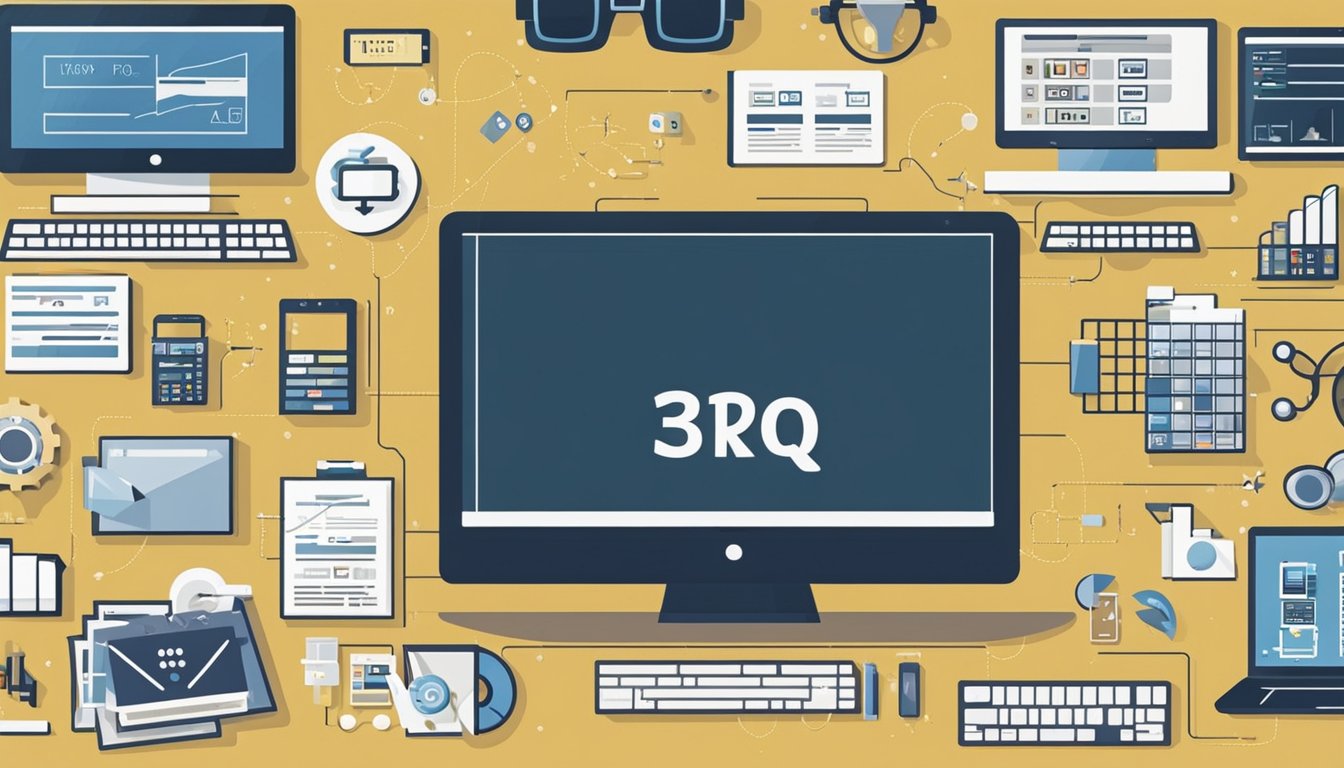
Role of Custom Software in the Education Industry
Custom software development has revolutionized the education industry. With the increasing digitization of society, institutions and educators strive to keep up with the changing trends in the education sector. Custom software development provides ta
Custom software development has revolutionized the education industry. With the increasing digitization of society, institutions and educators strive to keep up with the changing trends in the education sector. Custom software development provides tailored-made software that can help institutions improve the standard of learning and teaching.

The significance of custom software in the education industry cannot be overstated. Custom software can provide a range of benefits, including personalized learning experiences, increased efficiency, and accessibility. With the help of custom software, educators can create learning modules that cater to the specific needs of their students. Furthermore, custom software can help institutions streamline their administrative processes, saving time and resources.
The impact of technology trends in education has further highlighted the need for custom software development. As e-learning and AR/VR-based learning become more prevalent, custom software development is becoming increasingly important. However, with the benefits come challenges, and institutions must navigate these challenges to ensure that their custom software is effective and efficient. In this article, we will explore the role of custom software in the education industry, its significance, and the challenges and future directions in this field.
Key Takeaways
- Custom software development has revolutionized the education industry by providing tailored-made software that can help institutions improve the standard of learning and teaching.
- Custom software can provide a range of benefits, including personalized learning experiences, increased efficiency, and accessibility.
- The impact of technology trends in education has further highlighted the need for custom software development, but institutions must navigate challenges to ensure that their custom software is effective and efficient.
The Significance of Custom Software in Education

As technology continues to advance, the education industry has been quick to adopt custom software development solutions to enhance the learning experience, streamline administrative tasks, and improve overall efficiency. Custom software has become a vital tool for educational institutions seeking to stay competitive and provide high-quality education to students.
One of the significant benefits of custom software in education is its ability to provide personalized learning experiences. With custom software, educators can tailor the learning environment to the individual needs and learning styles of each student. This ensures that students receive the support and resources they need to succeed, regardless of their background or abilities.
Moreover, custom software can play a vital role in broadening access to quality education. By leveraging technologies such as cloud computing and AI, custom education software can make high-quality learning resources accessible to students in remote or underserved areas, thereby promoting educational equity.
Custom software is also transforming the way educators manage administrative tasks. With custom software, educators can automate routine tasks such as grading, attendance tracking, and record-keeping, freeing up time and resources to focus on more critical tasks such as curriculum development and student engagement.
In conclusion, custom software is playing an increasingly significant role in the education sector, revolutionizing the way educators teach and students learn. By providing personalized learning experiences, broadening access to quality education, and streamlining administrative tasks, custom software is helping to create a more efficient, effective, and equitable education system.
Impact of Technology Trends in Education

As technology continues to advance, it is no surprise that the education industry is also evolving to integrate these new trends. In this section, I will discuss the impact of technology trends in education, focusing on AI and IoT in Education, and Virtual Reality and Augmented Reality in Learning.
AI and IoT in Education
AI and IoT are two of the most popular technology trends that have been integrated into the education industry. AI has been used to personalize the learning experience for students by analyzing their learning patterns and providing customized learning materials. IoT, on the other hand, has been used to create smart classrooms that can automatically adjust the lighting and temperature based on the number of students present in the room.
The integration of AI and IoT in education has led to more efficient and effective learning experiences for students. For example, AI-powered chatbots can provide instant feedback to students' questions, while IoT devices can help teachers monitor students' progress in real-time.
Virtual Reality and Augmented Reality in Learning
Virtual Reality (VR) and Augmented Reality (AR) are two technologies that have been gaining popularity in the education industry. VR allows students to experience immersive learning environments that simulate real-world scenarios, while AR overlays digital information onto the real world.
The use of VR and AR in education has been shown to increase student engagement and retention. For example, medical students can use VR to practice surgical procedures in a safe and controlled environment, while AR can be used to provide interactive learning experiences for history students by overlaying historical information onto real-world locations.
Overall, the integration of technology trends such as AI, IoT, VR, and AR has had a significant impact on the education industry. These technologies have enabled more personalized and interactive learning experiences for students, leading to improved engagement and retention. As technology continues to evolve, it will be interesting to see how it will continue to shape the future of education.
Efficiency and Accessibility through Custom Software

As technology continues to become more integrated into the education industry, the use of custom software development solutions is becoming increasingly popular. Custom software development can be used to fulfill the varied and specialized requirements of students and staff, resulting in improved efficiency and accessibility.
Learning Management Systems
One area where custom software development can be particularly useful is in the development of Learning Management Systems (LMS). An LMS is an online platform that allows educators to manage and deliver educational content, track student progress, and assess learning outcomes. Custom software development can be used to create a personalized learning experience that meets the needs of individual students.
In addition, custom software development can be used to create assessment tools that are tailored to the specific needs of each student. This can include automated grading and evaluation, attendance tracking, and more.
Administrative Automation
Another area where custom software development can be useful is in administrative automation. Administrative tasks can be time-consuming and tedious, but custom software development can streamline these tasks and improve efficiency.
For example, custom software development can be used to automate administrative tasks such as scheduling, record-keeping, and data management. This can free up time for educators and administrators to focus on more important tasks, such as developing curriculum and engaging with students.
Overall, custom software development has the potential to revolutionize the education industry by improving efficiency and accessibility. As the eLearning market continues to grow, software developers will play an increasingly important role in the development of educational software and personalized learning solutions.
Challenges and Future Directions

As with any technology, custom software development in the education industry is not without its challenges. One of the biggest challenges is the complexity of the software. Educational institutions have unique needs, and creating software that meets those needs can be a complex process. However, with the help of experienced developers, bespoke software can be created to meet these unique needs.
Another challenge is integration. Educational institutions often use a variety of software solutions, and integrating these solutions can be a difficult and time-consuming process. However, custom software can be designed to integrate with existing systems, making the transition smoother and more efficient.
Cost is another concern when it comes to custom software development. Educational institutions may have limited budgets, and custom software can be expensive to develop. However, the long-term benefits of custom software can outweigh the initial costs, such as increased efficiency and productivity.
Maintenance and support are also important considerations. Custom software requires ongoing maintenance and support to ensure it continues to meet the needs of the institution. However, with the right support team in place, issues can be quickly addressed, and updates can be made to keep the software up-to-date.
The COVID-19 pandemic has highlighted the need for innovative solutions in education, including custom software. With the rise of remote learning, educational institutions have had to adapt quickly to meet the needs of students and teachers. Custom software can play a key role in this adaptation, providing solutions that are tailored to the unique needs of each institution.
Looking to the future, technological trends such as artificial intelligence and adaptive learning will continue to shape the education industry. Custom software can be designed to incorporate these trends, providing educational institutions with cutting-edge solutions that enhance the learning experience for students.
In conclusion, while there are challenges associated with custom software development in the education industry, the benefits can be significant. With the right approach and the right team in place, custom software can provide educational institutions with solutions that meet their unique needs and enhance the learning experience for students.
Frequently Asked Questions

What are some examples of custom software used in the education industry?
Custom software can be designed to manage student information, track grades, and deliver training materials. Learning Management Systems (LMS) are an example of custom software used in the education industry. An LMS can help educational institutions manage student data, track student progress, and deliver course content.
How does custom software benefit the education industry?
Custom software can help educational institutions improve efficiency, reduce costs, and provide better learning experiences for students. Custom software can automate administrative tasks, provide personalized learning experiences, and improve communication between students and teachers.
What skills are required for a custom software engineer in the education industry?
A custom software engineer in the education industry should have strong programming skills, knowledge of software development methodologies, and experience working with educational software. They should also have good communication skills and the ability to work collaboratively with other team members.
What is the difference between custom software and education software?
Custom software is designed specifically for the needs of a particular organization, while education software is designed for general use in the education industry. Custom software is typically more tailored to the specific needs of an educational institution and can provide more specialized functionality.
How does custom software improve the efficiency of educational institutions?
Custom software can automate administrative tasks, such as managing student data, tracking attendance, and grading assignments. This can help educational institutions save time and reduce costs. Custom software can also provide personalized learning experiences for students, which can improve student engagement and retention.
What are the advantages of using custom written software in the education industry?
Custom written software can provide educational institutions with more specialized functionality, better integration with existing systems, and improved security. Custom software can also be more cost-effective in the long run, as it can be tailored to the specific needs of an educational institution and can reduce the need for manual labor.




